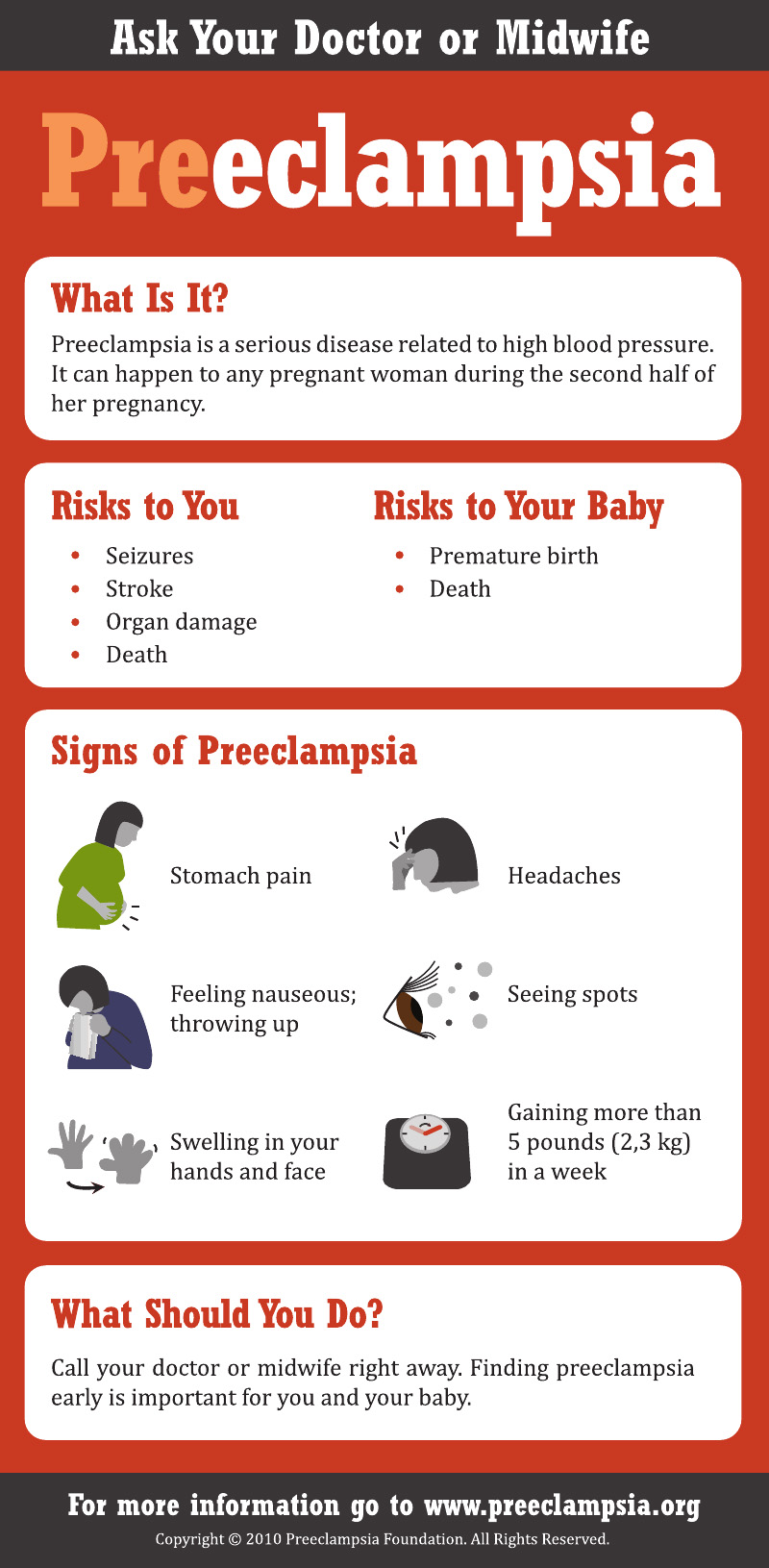
Preeclampsia is defined as high blood pressure and excess protein in the urine after 20 weeks of pregnancy in a woman who previously had normal blood pressure.
Thousands of women and babies die or get very sick each year from this dangerous and life threatening condition called preeclampsia.
The only cure for the problem is delivery, which can endanger a baby early in pregnancy.
Women at high risk for preeclampsia include those with a previous history of the problem, women with diabetes, high blood pressure or obesity and those with immune disorders or who are pregnant with more than one baby.
A draft recommendation by a prominent U.S. health task force states that women at high risk for preeclampsia should start taking low-dose aspirin in their second trimester to reduce the risk.
The review for the U.S. Preventive Services Task Force suugest that beginning daily doses of 81 milligrams of aspirin after 12 weeks of pregnancy may reduce the risk of preeclampsia by 24 percent.
According to the news statement released yesterday, that single pill of so-called baby aspirin may also lower the risk of premature birth by 14 percent and cut by 20 percent the risk of intrauterine growth restriction or IUGR, a condition in which a baby grows slower than expected in the mother’s womb.
This recommendation was welcomed by Eleni Tsigas, executive director of the Preeclampsia Foundation.
Tsigas lost a daughter in 1998 to the condition and developed severe preeclampsia with a son during her second pregnancy. A third pregnancy was normal.
“We support women talking to their caregivers about low-dose aspirin,” Tsigas said.
There are two messages: First, women really do need to control the things they can control to have a healthy pregnancy,” Tsigas said. “The flip side is, even if you are healthy, you are not off the hook. All women are at risk for preeclampsia.”
Aspirin is an antiplatelet medicine, that is normally given to patients with a risk of heart attacks.
Low-dose aspirin (75mg or greater) may be taken if you are pregnant, but only on the recommendation of your doctor.

No comments yet.